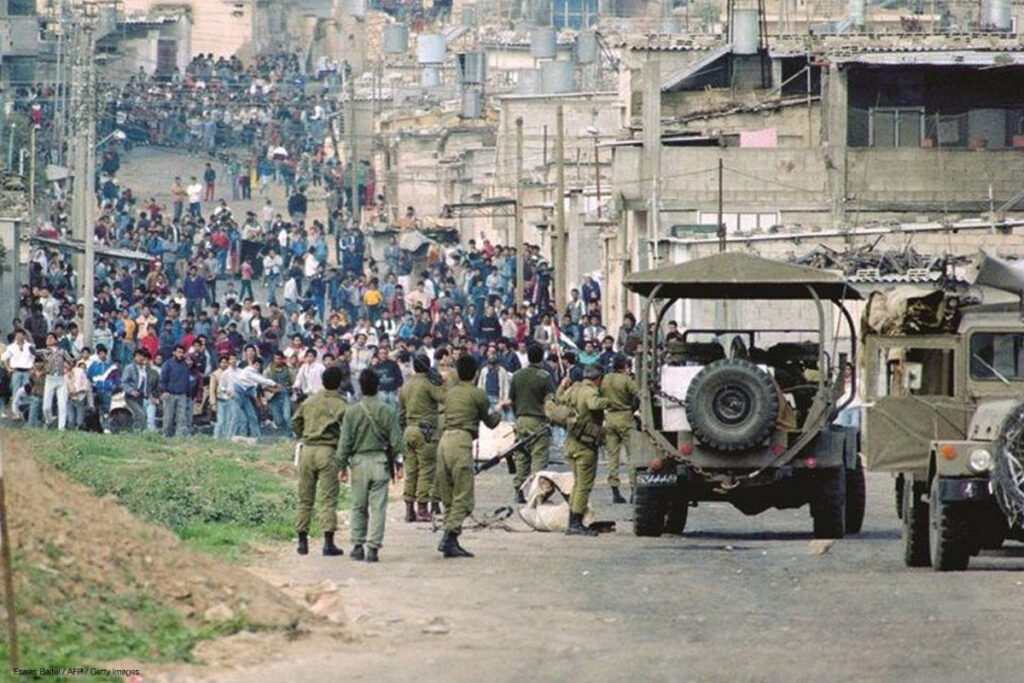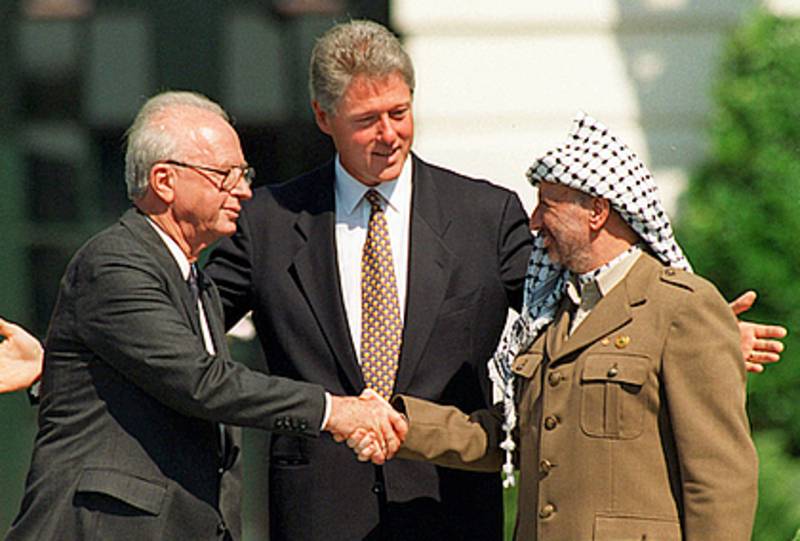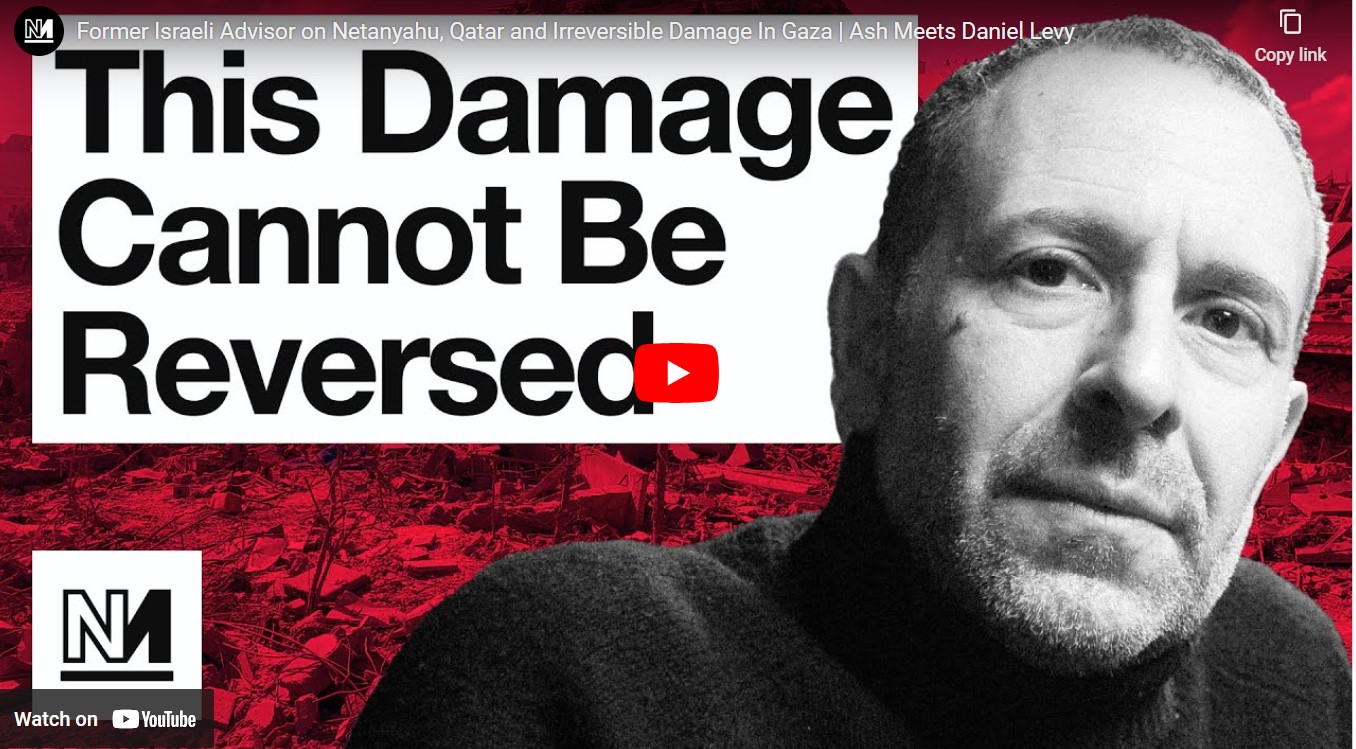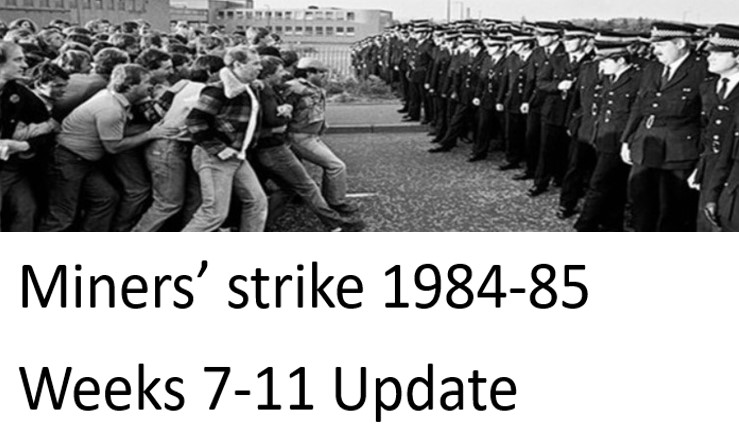By Ray Goodspeed, Leyton and Wanstead Labour Party member
Daniel Levy was an official Israeli government negotiator under the government of Ehud Barak from 1999 to 2001. In an interview with Ash Sarkar of Novara Media, he looks back on the so-called Oslo ‘peace process’ of the 1990s and the Camp David summit of 2000.
The full interview can be watched here.
He discusses just how realistic the chance for peace was, how sincere was the Israeli government of the time, and what it would take now to achieve a peace agreement. His conclusions are remarkable, and expose all the falsehoods of Western diplomacy on the issue, both then and now, and I strongly recommend watching the video.
Amid the waves of bias and misinformation around the devastating Israeli attacks on Gaza, there has been a remarkable increase in the reach of outlets like Novara Media and others, notably Owen Jones’s channel, which have seen a sudden and dramatic increase in their subscribers and views. There is clearly a thirst for alternative sources of news, especially among the young. It is not necessary to agree with every position that they express, to welcome the break of the stranglehold of the establishment media by such explicitly socialist channels.
Levy does not go so far as to say that peace was not obtainable in the 90s. He gives his opinion that Yitzhak Rabin, the Israeli leader at the time (1995), was “on a journey” and hints that he could have gone further down the road of concessions and peace with Palestinians. Given that Rabin was assassinated by a Jewish ultra-Zionist extremist, we will never know, of course, so the point has no actual relevance today. It is interesting that the current Israeli national security minister, Ben Gvir, was part of that extremist movement that demonised and threatened Rabin at the time.
But even in the case of Rabin, Levy accepts that he may well have either not wanted to make more concessions or would not have been able to. More importantly, Levy recognises the inescapable truth that the existence of an independent Palestine is not compatible with Zionism as it has developed in Israel.
Palestinian national rights “antithetical to the Zionist state“
Other, older, strands of Zionism did not necessarily involve wholesale dispossession of the Palestinians, but they never achieved any significant power or influence as part of Israel’s “lived reality”. Palestinian national rights are “antithetical to” the Zionist state, whether a right-wing or so-called Labour Zionist version.
Levy makes it clear that in fact the Israeli state has never genuinely accepted the right of Palestine to exist, outside empty speechifying to Western leaders. And now, of course, the “two-state solution” has been officially declared dead by the Israeli government, confirming what most honest observers already knew.
Yet all we hear today, over and over, is that the failure of Hamas to recognise Israel’s right to exist is the major stumbling block. The rest of the Palestinian leadership, of course, accepted the two-state solution many decades ago – and it got them nowhere.

That there was any peace process at all in the early 90s, was due to a combination of internal and geopolitical factors, Levy argues. Firstly, it came after the mass uprising of Palestinians in the first Intifada, which involved wide layers of Palestinian society in active, mostly non-violent resistance, and which the Israeli government brutally suppressed.
This brought the Israeli regime under substantial international pressure, even to limited financial and diplomatic pressure from the US government of George Bush Senior. Rabin even ran for election on the slogan of spending more on working-class areas in Israel, rather than the settlements!
With the end of the Soviet Union, the fall of apartheid South Africa, and even hopes of a peace deal in Ireland, there was a window, Levy says, where the US could allow itself to put more pressure on Israel in a world where it saw itself as the unchallenged master.
Oslo process 25 years on
Yet in the event, none of this pressure was enough to force genuine, long-lasting concessions. The Oslo proposals sought to focus on immediate confidence building measures, rather than looking at any ultimate settlement, or questions such as the future of Jerusalem or the refugee issue, which were all postponed to be settled by a 1999 deadline. Twenty-five years later, none of those issues have been addressed, and Jerusalem has been effectively annexed.
No significant scaling back of the Israeli occupation occurred. The new Palestinian authority was merely granted the minimum powers of a local authority in city-centres, but all the apparatus of checkpoints and military occupation between cities, as well as arbitrary arrest and the whole machinery of oppression, not only persisted, but intensified. Most importantly, there has been an increase of more than 450 percent in illegal Israeli settlements since the Oslo accords were signed!

During the later Camp David negotiations, during which Levy played a direct part, it was clear to him that the US were not acting as “honest brokers” of a just settlement, but as lawyers representing the Israeli state. Naturally, it comes as no surprise whatsoever to socialists that US imperialism cannot be relied upon but it is still interesting to hear it confirmed by a source like Levy.
Levy’s main point is that the Israelis are increasingly being granted “total impunity” by the US and the West in general. He believes that Israel will never come to a just and fair agreement until there is “a price for not doing” that. He boldly states:
“We have treated as normal a government that wears eradicationist ethno-supremacy and ethnic cleansing as a badge of pride”
He feels that external pressure on the Israeli regime is the key, but he suggests formidable obstacles to that in US internal politics: the power of the “military/industrial complex”; the power of money and lobbying interests in US politics, especially that of the evangelical Christian Zionist right and their victimisation of pro-Palestinian voices, even those timid voices of the Left-Democrat “squad”; and the support in the US for another settler/colonial project.
Levy does, however, point to an important push-back from younger people in the wake of the Black Lives Matter, and other popular movements for social justice, and greater and greater popular support for the Palestinian cause, even among younger Jewish people, who focus on what Levy calls “Jewish universalist” values.
Jews and wider anti-racist struggles
There is an increasing reluctance of Jewish people to be dragged into a culture war on the side of the racist far right, cutting Jews off from wider anti-racist struggles at home or internationally, as Israel cosies up to various far right regimes around the world. While these are hopeful signs, which the ongoing slaughter in Gaza will strengthen, he does not have any false, starry-eyed optimism about the immediate future.

He notes that the US is desperate to buy off the corrupt, repressive Arab regimes in the Middle East, and that the Arab rulers have betrayed the Palestinians over and over again, giving just verbal support to Palestine to gain favour with their own oppressed populace. Yet the continued support of the mass of the people in the Arab (and wider Muslim) world could play a crucial factor – again, given the level of barbarity of the Israeli regime and the strength of popular anger. Support from other world powers, in the “global south” could be an important geopolitical factor, Levy suggests.
The immediate outcomes for the people of Gaza are desperately bleak, Levy believes, and the awful things that have been done cannot be reversed, both in terms of the loss and damage to human life, and the destruction of infrastructure in Gaza. Deaths from disease or hunger will pile further horror on top of the direct military killing. He thinks this may be a “new Nakba” – a further grisly episode in the ethnic cleansing of Palestine which began back in 1947-8. The ruling class of Israel will continue with this oppression and violence unless it is made to understand that “this behaviour is not cost-free”.
Levy’s analysis is astute, as far as it goes. It is certain that nothing will remain unchanged after this degree of destruction, brutality and bloodshed. However, as socialists, we recognise that the fate of the Palestinians and, indeed, of Israeli workers, is ultimately bound up with the defeat of imperialism and capitalism both in Western nations and by the mass movement of the workers, farmers and young people of the entire Middle East to overthrow their oppressive rulers and bring an end to capitalism in the region.
On the basis of such a movement it is not ruled out that even sections of the Israeli working class could be drawn into the struggle, but only on the basis of a recognition of freedom, equality and human rights for all nationalities and religions, and specifically the rights of Palestinians.



